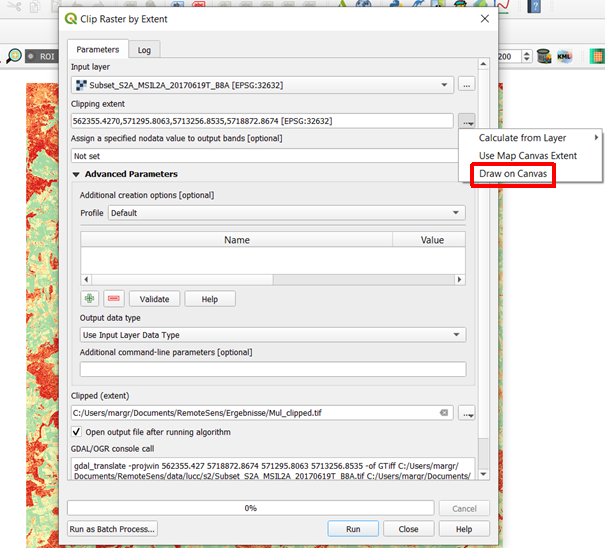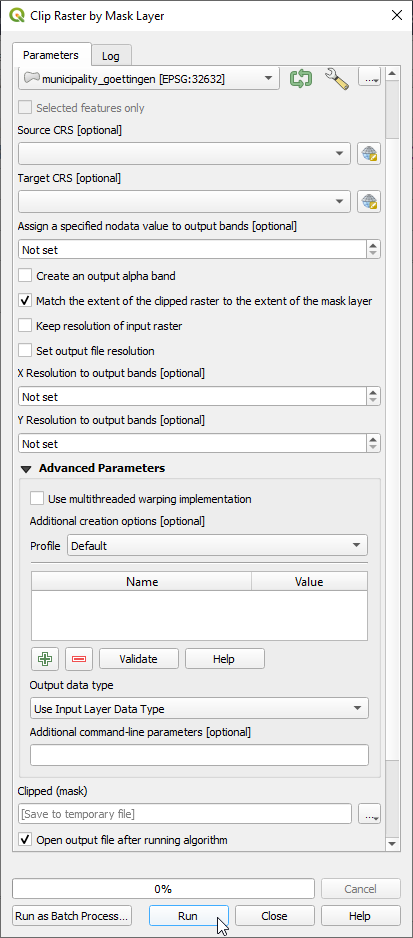Spatial subset
From AWF-Wiki
Interactive box selection
- Click the Open Data Source Manager
 and Add raster layer
and Add raster layer  and select the file /geodata_w01/mosaic_S2B_MSIL2A_20190724T103029_N0213_R108_T32UNC_UNB_UPC.tif.
and select the file /geodata_w01/mosaic_S2B_MSIL2A_20190724T103029_N0213_R108_T32UNC_UNB_UPC.tif.
- Raster --> Extraction ---> Clip Raster by Extent
- Input file (raster): Choose a loaded file from the drop down list or click Select to browse for a file.
- Output file: click Select to choose a new file name for the subset image.
- Define the clipping extent by clicking... and Select extent from canvas The clipping mode is now active. Hold a left click on the map canvas dragging a box of your region of interest.
- Adjust the extent coordinates in the text file rounding the coordinates (upper left and lower right).
- Click OK.
Masking by vector polygon
- Load the vector file of the communities of county Göttingen e.g. \geodata_w01\VG250_GEM_KRS_Goettingen.gpkg.
- Select a community of your choice: right click Open Attribute Table
- Raster --> Extraction ---> Clip Raster by Mask Layer...
- Input file (raster): Choose a loaded file name from the drop down list or click Select to browse to a file. * Make sure that the CRS is the same like the image file (here WGS84/UTM Zone 32, EPSG:32632) that you wish to be clipped!
- Mask layer: Select the vector file (s. above).
- Switch checkbox on: Selected features only.
- Assign a specofied nodata value: 65535
- Clipped (mask)): click Select to choose a new file name for the subset image.
- Switch the checkbox on: Crop the extent of the target dataset to the extent of the cutline. All image data outside the polygon will be masked.
- Click Run.

